October 2024 Newsletter
23 October 2024
Deep Bed Farming reaches West Africa
In August, we had the opportunity to share Deep Bed Farming techniques with new friends from West Africa. Ramatoulie Jarju and Steve Bodsworth, trustees from a Gambian NGO, The Fur and Feather Farming Project, heard about Tiyeni and Deep Bed Farming and came to Malawi to learn more for themselves.
The Fur and Feather Farming Project is a Gambian-registered agricultural charity, based in the hamlet of Tampoto Koto, about forty-five miles up-country from Banjul. Their aims chime with those of Tiyeni: to increase farmers’ yields, plant tree seedlings, create a greater awareness and understanding of global warming and improve the health of families by helping them to develop a more nutritious and varied diet.
Steve first heard about Tiyeni from a woman named Sally Huband in his home village of Plumpton Green in England. She was a nurse in Malawi for many years during the 1960s and 1970s. Sally came across Tiyeni and shared this with Steve, wondering whether Deep Bed Farming would be applicable in The Gambia. Steve and his colleagues read about Deep Bed Farming on our website and saw that it works but were keen to learn first hand and put the theory into practice.
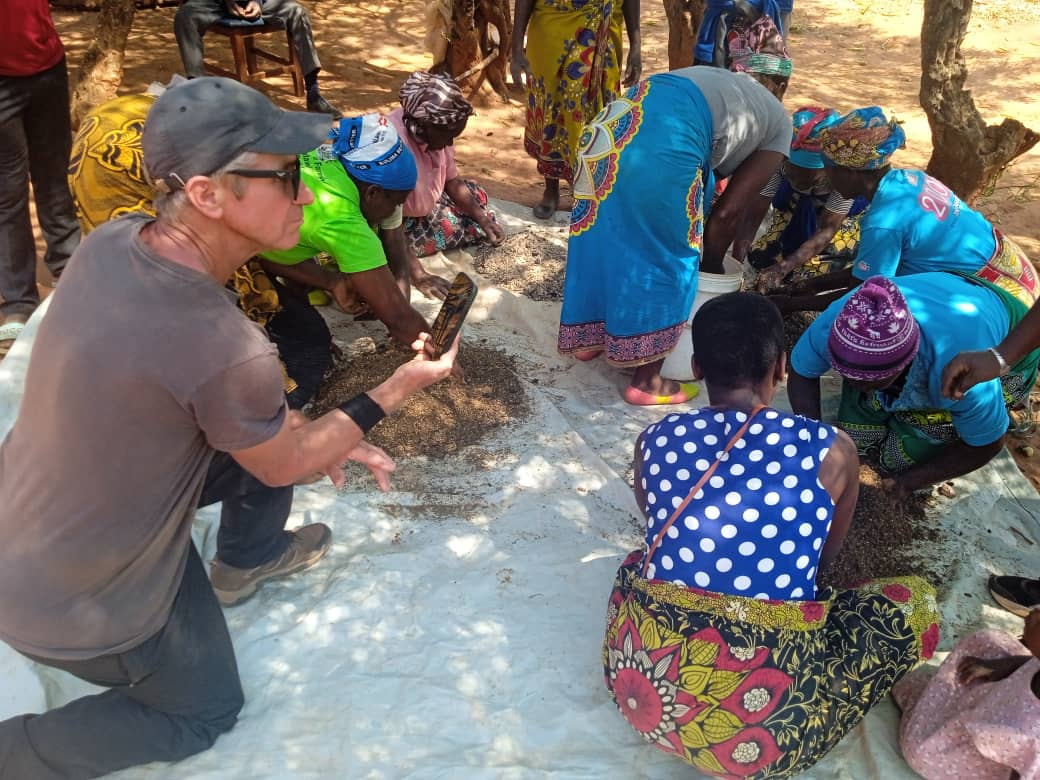
At the beginning of their visit, the Tiyeni team began by explaining the theory and principles of Deep Bed Farming in the office before moving to the field to learn how to put the theory into practice. A two-day training was organized in Emsizini in a village called Kausiku Nyoni where the two visitors together with local farmers were trained on all aspects of Deep Bed Farming including preparing and tilling the land and bed making using marker ridges. They also had the opportunity to visit communities who have been practicing Deep Bed Farming for some time to hear from some farmers about the benefits of Deep Bed Farming and how it has changed their lives.
Steve commented:
‘What stood out from the beginning was the passion and the knowledge that Isaac, Godfrey, Timothy and all the others have for their job. Their enthusiasm was obvious. Enthusiasm builds like a rolling snowball and with Toulie and I it has started rolling. We also learnt that the communities we were taken to also had this enthusiasm, literally singing the praises of Tiyeni at one community. I have no idea how staff tried to win over such communities in the early stages but time after time farmers informed us of their increased yield after following the Deep Bed Farming guidelines. In the UK we do not have the stress of finding food each day. I was humbled.’
It is now their intention to take what they have learnt about Deep Bed Farming back to The Gambia. Initially they intend to demonstrate the system to their staff on part of their land and invite farmers within the community to understand its simple concept.
News about Tiyeni and Deep Bed Farming is already spreading in the eastern region of Africa, putting Tiyeni on the map across the region. But this collaboration gives us the opportunity to take the technology to West Africa for the first time. As well as sharing the existing system with The Gambia, the adoption of Deep Bed Farming in a new region may lead to new ideas and adaptations which will also benefit farmers in Malawi.
To this end, an MoU is being drafted so that there can be a long-term partnership between the two organisations, giving us both an opportunity to monitor and evaluate how Deep Bed Farming is working in The Gambia in the long-term.
Another new partnership!
In July we were contacted by BASEflow, a Malawian social enterprise which aims to improve the sustainability of groundwater sources for the rural population in Malawi by empowering the public and private sector with the necessary knowledge, skills, technologies and innovations. They are currently working on a Trocaire Irish Civil Society Programme project in Balaka, Chikwawa, and Machinga supporting rainwater harvesting farming technologies for managed aquifer recharge and were interested to understand how Deep Bed Farming could further support these aims.
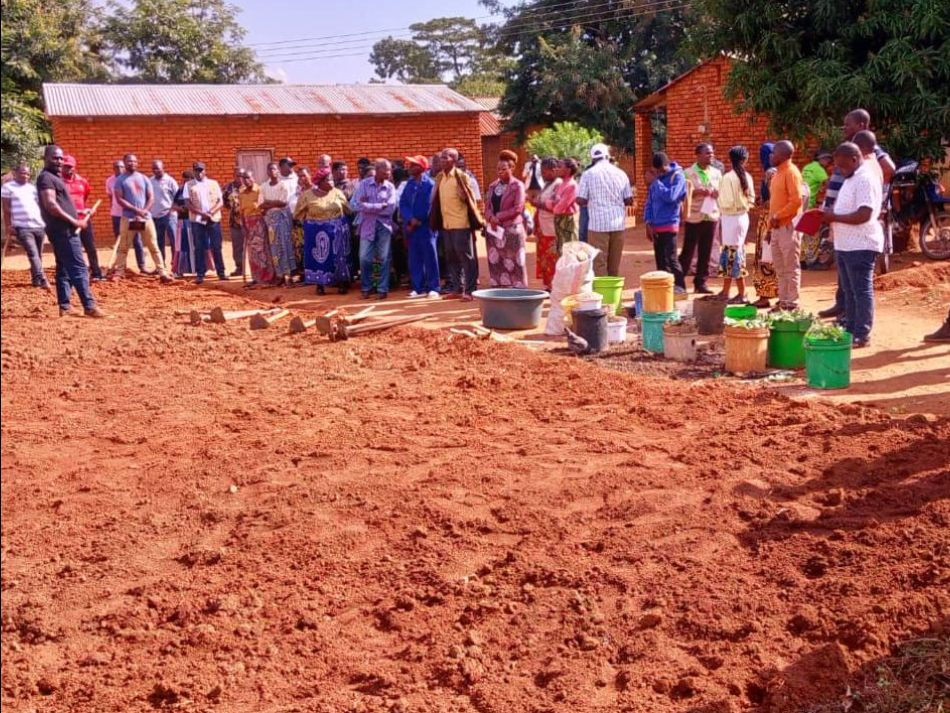
Their approach came out of the blue: after visiting our website, they contacted us to express interest in learning more about Deep Bed Farming. Their interest in groundwater management and the protection of the environment intersects very well with Deep Bed Farming which helps to conserve the soil and water in the uplands, thus benefitting the recharging of aquifers and the sustainability of quality water supply to both boreholes and wetland areas. With the use of manure and the planting of agroforestry trees, Deep Bed Farming also helps by not contaminating the waters with chemical fertilisers and helps to prevent siltation of wetlands.
Their interest in Deep Bed Farming prompted BASEflow and its partners to participate in a one-day Deep Bed Farming training with us. At this training they learnt how farmers break hardpan, do contour alignment, marker ridge construction and bed making. They understood first-hand the benefits as far as soil erosion control, improving crop yield and sustainability are concerned. They also participated in the evaluation process where farmers practicing Deep Bed Farming showcased how their crop yields differed from conventional farming. The comparison was based on cassava grown with Deep Bed Farming and cassava grown with conventional farming. The farmers demonstrated that the yield of cassava grown with Deep Bed Farming was three times more than cassava grown through conventional ridges. After the training, BASEflow felt that Deep Bed Farming is a superior technology for crop productivity, soil and water conservation, and mitigation of the harmful effects of climate change.
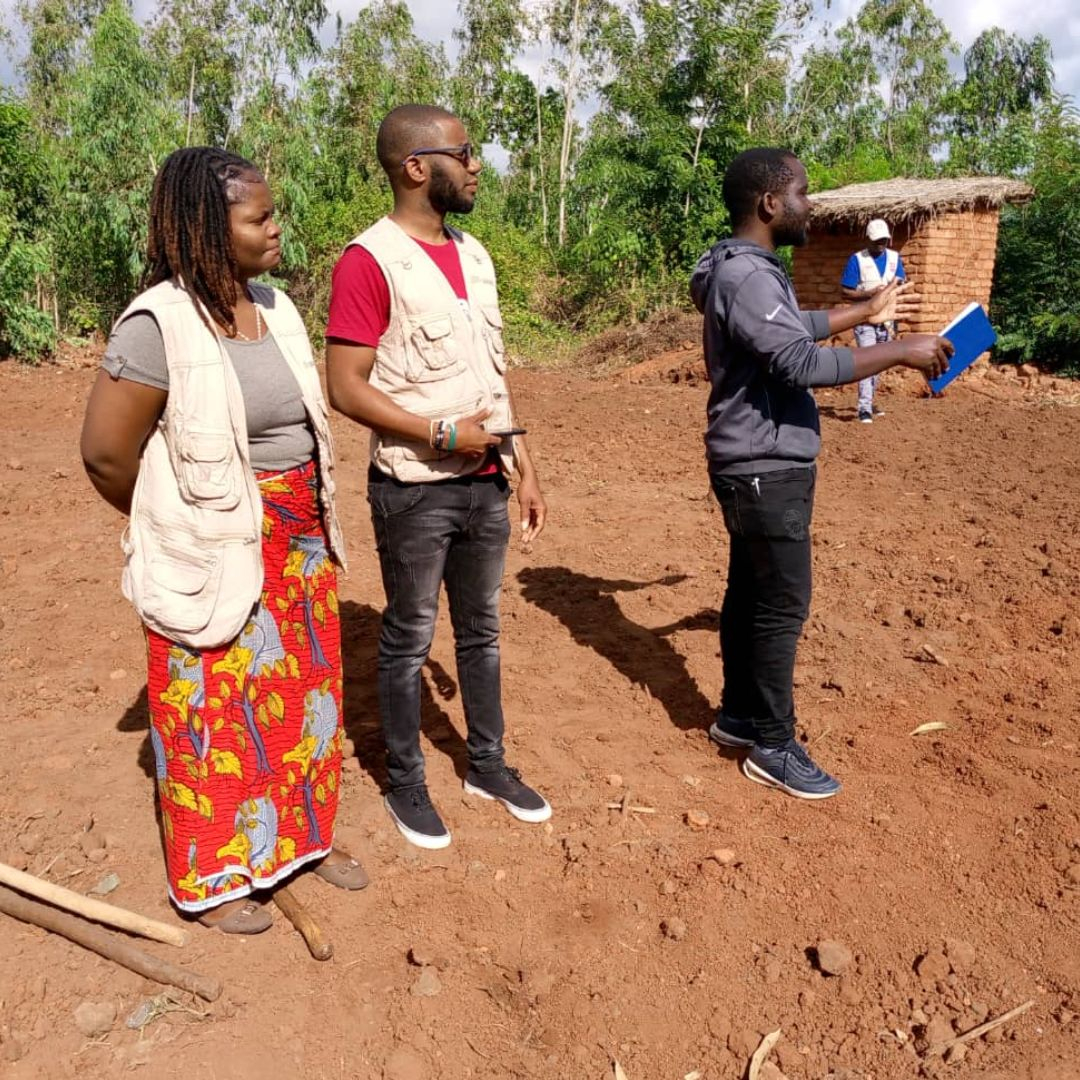
BASEflow have expressed great interest in working with Tiyeni in all three of their districts and to start implementing Deep Bed Farming this year. Their aim is to start by establishing demonstration fields in Balaka, Machinga and Chikwawa and then to include Deep Bed Farming activities in their plans for next year and to start rolling out the programme at a larger scale. This will also involve all its partners including Circle for Integrated Community Development (CICOD), Catholic Development Commission in Malawi (CADECOM) and the Ministry of Agriculture. By working with BASEflow, we have the opportunity to develop the wider adoption of Deep Bed Farming not only with BASEflow itself but also with their partners who can encourage the adoption of Deep Bed Farming in their various programmes in their districts. With their deep interest in adopting Deep Bed Farming in their catchment areas, BASEflow wants to establish a long-term partnership with Tiyeni.
Initially, the establishment of Deep Bed Farming demonstration gardens in BASEflow’s districts will showcase how Deep Bed Farming can address some of the challenges these areas are currently facing in terms of soil erosion, the low level of groundwater and the drying up of boreholes.
Meet Thokozani Kamphata, Tiyeni’s Aftrak Project Manager
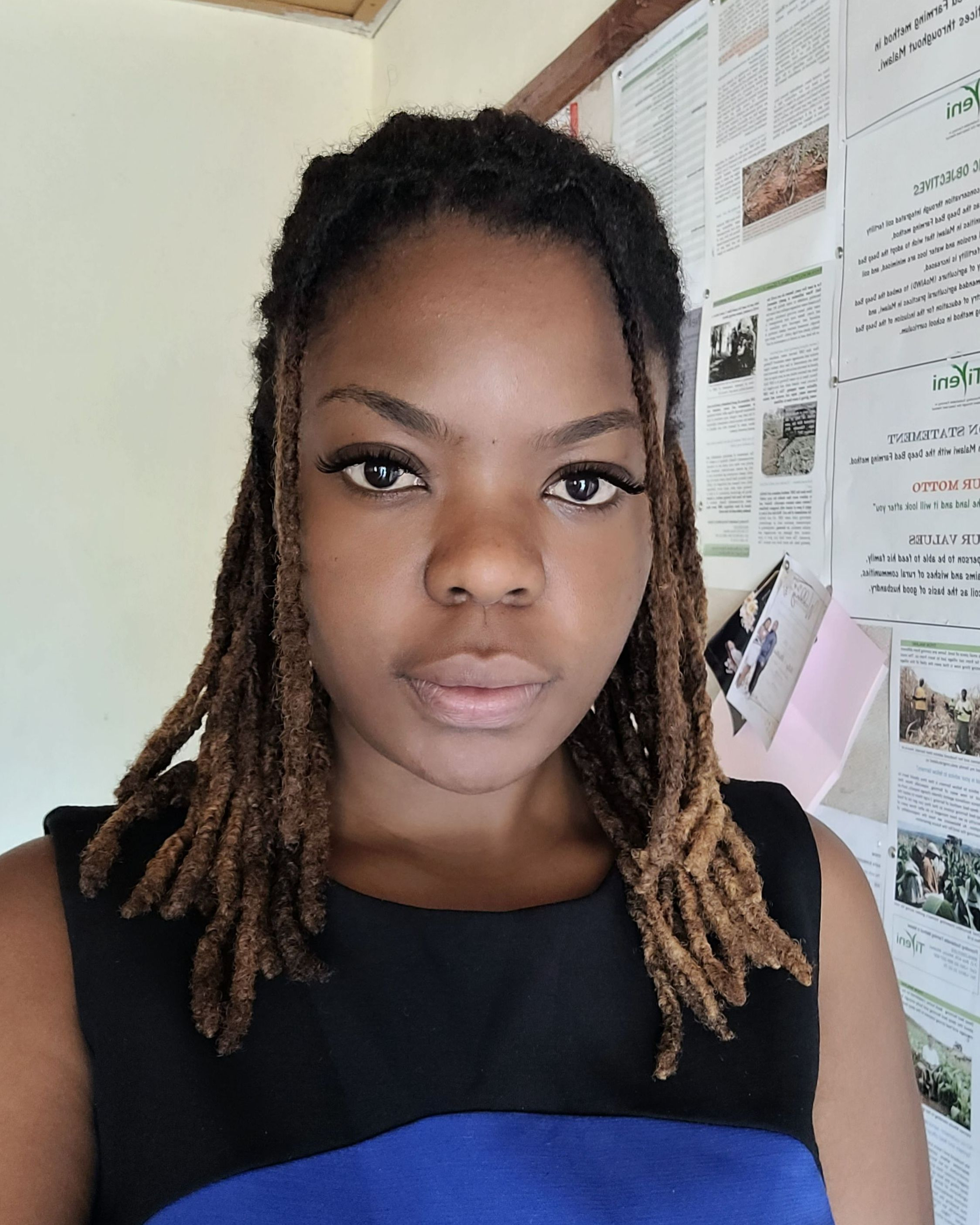
This is a relatively new role in Tiyeni: the job was created in 2022. In a short space of time, there has been a lot of change for Aftrak, going through the long and exhaustive shortlisting process for the Milken-Motsepe Prize in Green Energy before ultimately winning it earlier this year. We caught up with Thokozani to find out how she’s enjoying this challenging role.
Tell us a bit about your background. How did you come to work at Tiyeni?
I honestly just got lucky that I found myself working with Tiyeni, it was really by God’s grace. I was working with Illovo Sugar Plc at the time that I was called for interview. I believe my academic background was an advantage: I have a Bachelor of Science (BSc) degree in Agribusiness Management from Lilongwe University of Agriculture and Natural Resources (LUANAR) which I obtained in 2018 and I am currently pursuing my Masters in Project Management at Malawi School of Government (MSG) which I will obtain this year - I’ve already done the course work and dissertation, the only thing remaining is to defend my thesis. I worked with the Small and Medium Enterprises Development Institute (SMEDI) as a Business Training and Information Officer from 2018-2021 and then I worked with Illovo Sugar Plc.
What does a typical day look like?
I usually start the day by having a stand-up meeting with my project team to discuss the plan for the day, which usually involves the field officers and some farmers who are beneficiaries of Aftrak. After that we do some training on operating the tractor: each farmer takes a turn to operate the tractor. We train the farmers on how to maintain the tractor and what to do if the chain gets jammed (we have faced this problem when the sometimes soil gets stuck in the chain). After much practice, we check how confident the farmers feel when operating the tractor then we call it a day. All in all it is about assessing the performance of the equipment, speaking with farmers about their experiences, and gathering feedback.
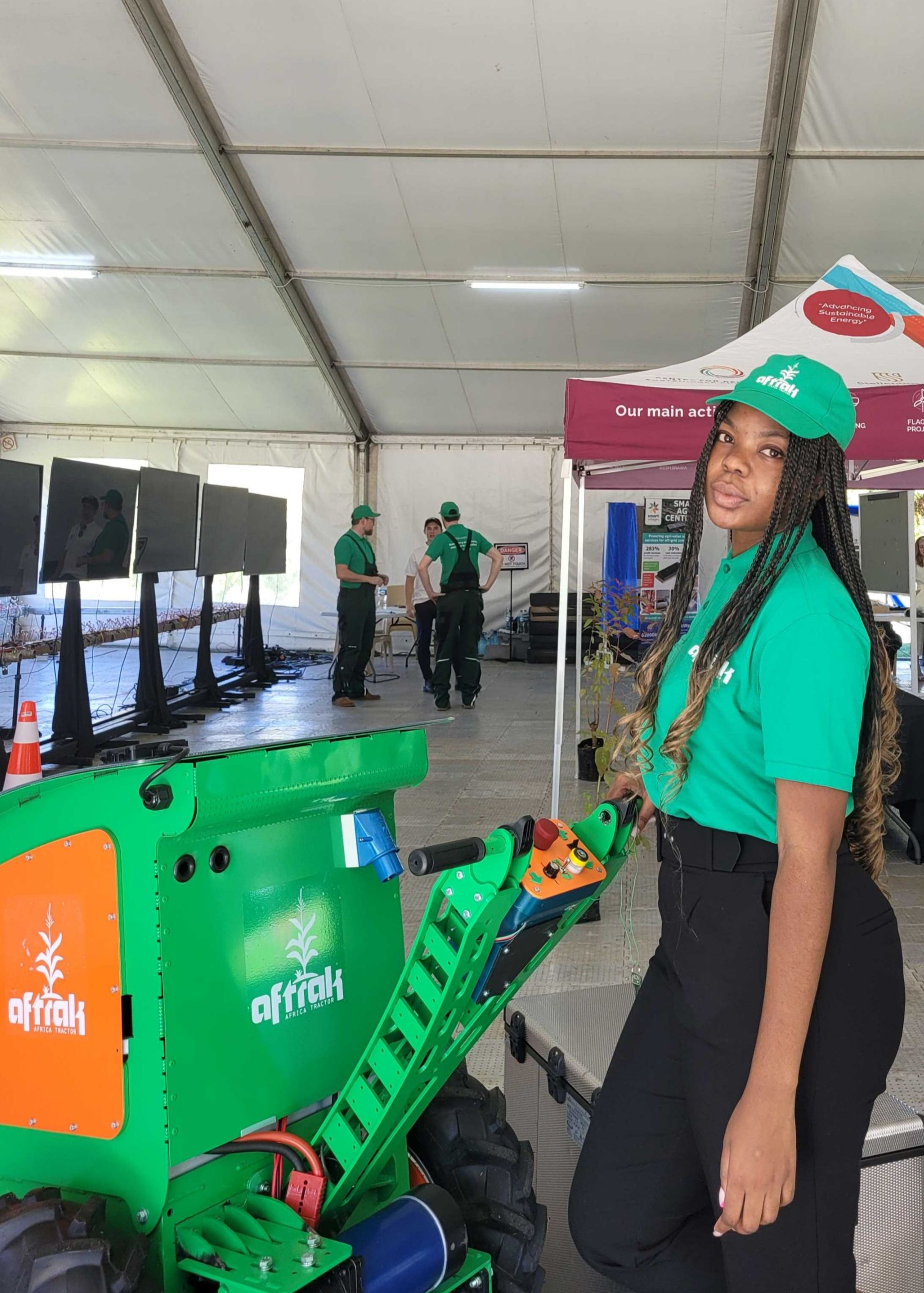
It's been an exciting year for Aftrak, winning the Milken-Motsepe Prize in Green Energy. How is that changing what you do in your job?
The award has drawn international attention to Aftrak since this a first for Malawi, so I have been having interviews with different media houses for example Voice of America. Some of the journalists have been asking to go to the site to see what we are doing and it has been very exciting to present Aftrak to them. It hasn’t really changed what I do but I have been interacting with a lot of different people. How would you like to see the future of Aftrak in Malawi?
I have a great vision for Aftrak: it has the potential to expand across all regions of Malawi, ensuring that smallholder farmers in even the most remote areas have access to solar-powered tractors and energy solutions. Most rural areas do not have access to mechanisation and the cost of fuel is very expensive. Scaling up the project would reach more communities and increase food security nationwide as the adoption of Deep Bed Farming should increase as well.
What do you like to do in your free time?
I don’t have much free time! Up until now, all my free time has been taken up with studying for my Masters degree. But when I do get time to relax, I like to read, watch some shows, and visit new places.
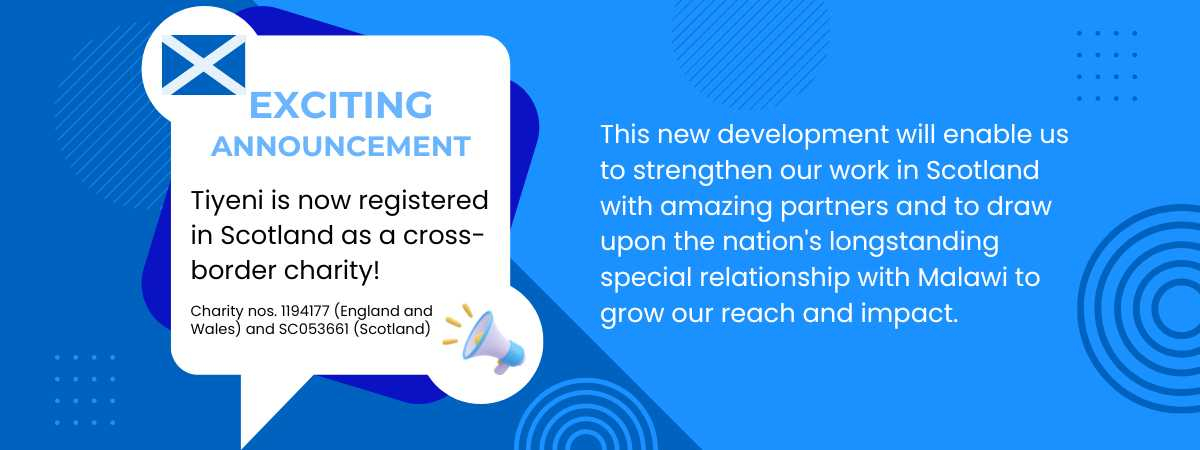
| Our work is only possible thanks to you, our dedicated supporters. Please consider donating to help to lift a farmer, or a family, in Malawi out of poverty and set them up for life. |

What type of stories would you like to see more of in our newsletter? We would really appreciate feedback from supporters like you in this quick, anonymous, two-question survey here.
Thank you!